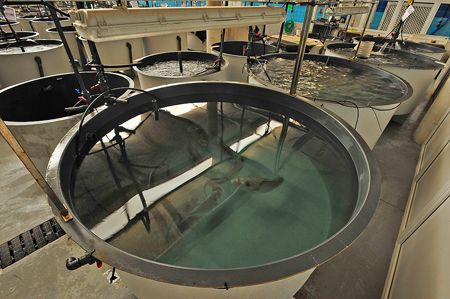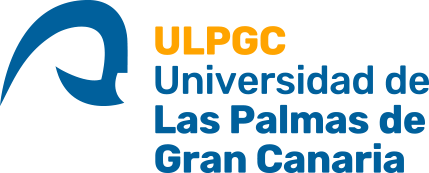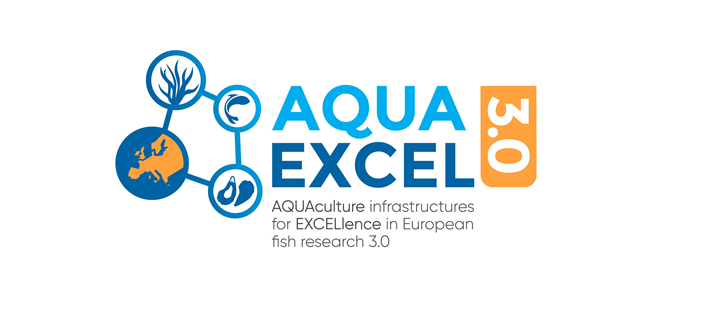Feed Integredients-additives Testing Unit (FITU)

How to acces our Research Facility
Researchers from any EU or Associated State can apply for access to any of the AQUAEXCEL Research Infrastructures. Applications must be made to use a Research Infrastructure in a different country to that of the lead researcher. Details of the other Research Infrastructures available within AQUAEXCEL can be found on www.aquaexcel.eu and on each institution website.
Each Research Infrastructure has a budget based on units of access, which are detailed for ULPGC on this page. Access to the facilities is provided free of charge to users and travel and subsistence expenses will also be paid. In general, it is anticipated that access will be in the form of one or in some cases two scientists travelling to work at one of the Research Infrastructures for a period of between one and three months.
Applications for Transnational Access may be made by any organisation (including commercial companies), but the conditions of access require the results of the work to be published and made available to the scientific community via standard channels.
Applications for Transnational Access should be made in accordance with the guidance that are made available on the project website (www.aquaexcel.eu). Applicants are also encouraged to directly contact individual facilities to discuss their research plans in advance of submitting an application.
Applications for Transnational Access will be reviewed by an expert selection panel and an independent ethics adviser. Projects selected for Transnational Access will be expected to demonstrate high scientific quality, make efficient use of resources and effectively address issues important for the development of European aquaculture – e.g. as expressed through the Strategic Research Agendas of the European Aquaculture Technology and Innovation Platform (www.eatip.eu).
Universidad de Las Palmas de Gran Canaria (ULPGC)
GIA (Grupo de Investigación en Acuicultura) is a Joint Research Unit of the ECOAQUA, with a 30 years experience in fish aquaculture RTD, mainly nutrition, pathology, new species and genetics. One of its main achievements has been the clarification of the biological mechanisms involved in the regulation of the functioning of several tissues by means of dietary nutrients, using histological and immune-histological studies. Besides, GIA has developed physical tagging systems and selection schemes in sparid species and microarrays, and molecular markers for genealogies and health studies (microsatellites, TNF, IL11, GR, HSP70, HSP90, Δ5 and Δ6 desaturases).
Name of the infrastructure: Feed Ingredients-additives Testing Unit (FITU).
Location: Techonological Scientific Park of ULPGC.
Web site address: ECOAQUA
Contact: Daniel Montero Vítores / daniel.monterol@ulpgc.es
AQUAEXCEL TNA facility: Feed Ingredients-additives Testing Unit (FITU)
Short description: FITU infrastructure includes an ingredient processing laboratory, a feed production hall, two series of 15 digestibility tanks (200 and 500 litres) and three wet labs with 170 tanks of 100, 200, 500 and 1 000 litres, as well as two lines for commercial scale testing, provided with computer controlled automatic, auto-demand or manual feeding and waste feed collectors (feed intake control), to test diets and ingredients for either larvae (including automated start feeding), juveniles or broodstock of marine fish species, both commercial or new species for aquaculture.
Keywords: On-growing, larvae, breeders, diet ingredients.
Technical labs: It also has access to a complete nutrition laboratory equipped with 3 GLCs, GC-MS, 3 HPLCs, Densitometer, Iatroscan, Khjeldahl, ovens, muffles, etc., where all lipid, protein, aminoacids, fatty acids, lipid classes, vitamins, pigments, toxines, dioxines, PCBs and certain minerals from ingredients, feeds, live preys, seaweeds, moluscs, fish, turtles and marine mammals are daily analysed.
Processing labs: Our facility has different kind of laboratories for biochemical analysis, meat and fish quality analysis.
Lodging facilities: No.
SERVICES - scientific support: Design of experiments, support of staff (sampling, etc..), realizing of experiments and data analysis. The facility allows determination of ingredient and feed quality, as well as nutritional studies, in relation to growth, nutritional status, health, welfare and juvenile and flesh quality of fish and mollusc.
SERVICES - electronic databases: No.
SERVICES - quality assurance: In our facility, ourself protocols are carried out for monitoring the quality of experiments, which are in agreement with regional, national and European legality for ethical and welfare issues.
Safety and ethical issues: A guide for housing and care of marine fish.
Facility Unit 1 Information [Feed Ingredients-additives Testing Unit (FITU)]
Name Facility Unit 1: Feed Ingredients-additives Testing Unit (FITU).
TNA: Yes.
Contact (Researcher): Daniel Montero Vítores / daniel.monterol@ulpgc.es
URL: ECOAQUA
General description: FITU is a flexible infrastructure containing, tanks for mating, tanks for rearing larvae and on-growing process, and tanks for breeders. All of them are prepared for on-line monitoring of temperature, oxygen, pH, flow and feed. The tank volumes are 0.5 m3, 1 m3, 10 m3, 40 m3, 80 m3. Total biomass around 624 kg for on-growing and 1,040 kg for breeders. Species: gilthead seabream, red porgy, redbanded seabream, dentex sp, seabass, meagre, seriola sp, etc...
Technical description: As relevant technical features: this infrastructure contents biofilter and monitoring for feeders, pH, oxygen, temperature, flow and photoperiod.
Water and environmental conditions: FITU is an open water system.
Flowrate: The flow rate range per rearing tanks is 2-4 twice per day, while this rate is 4-6 twice for breeder's tanks. The flow is monitored automatically and controlled automatically.
Temperature: 17.8 – 22.3ºC. It is monitored manually or automatically, and controlled manually.
Salinity: 36 ± 1‰. It is monitored manually.
Oxygen: Range: 6 – 8 mg/l. It is monitored manually or automatically, and also controlled automatically.
pH: 8.2±0.2
Light intensity and wavelength: Visible light controlled manually.
Photoperiod: Up to 200 lux, monitored manually or automatically and controlled automatically.
Fish measurements: Manually are measured the following parameters: size, weight, dressing percentage, visceral fat, gutted body weight, fillet weight and deformity.
Automatically are measured the following parameters: morphological traits, tag, behaviour, muscle fat, moisture, ash, collagen, genotype by multiplex and molecular markers.
Modality of access
Users can also have access to individuals from the different lines in order to conduct trials in their own laboratories. Fish are shipped by airplane in cube-containers by GIA researchers which have a wide experience and success in this process. The number of trials per year will depend on the numbers of families demanded and the requests by the different partners.
Unit of access
The unit of access is defined as 1 tank/week. One project is expected to comprise 15 tanks on average during twelve weeks. The duration will depend on the life cycle stage (from first feeding larvae to broodstock). Support offered under this proposal: The access will comprise the use of tanks including maintenance, water supply, daily feeding and husbandry of fish; manipulation, and sampling of fish. Also access to all dry laboratory facilities and other infrastructure, logistical, technical and scientific support to external users is offered on request. Scientific support will include advice on experimental design and methodology, documentation of results for all experiments conducted during the project, and appropriate methods for sampling and conservation of samples.

The University Institute ECOAQUA is a research centre that belongs to the University of Las Palmas de Gran Canaria, a public institution that offers a wide range of degrees in all the major areas of knowledge, with the aim of providing comprehensive training to those who come to it, in a commitment based on innovation, quality and internationalisation.






